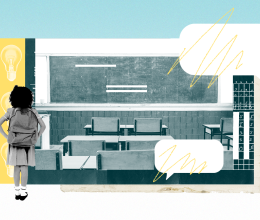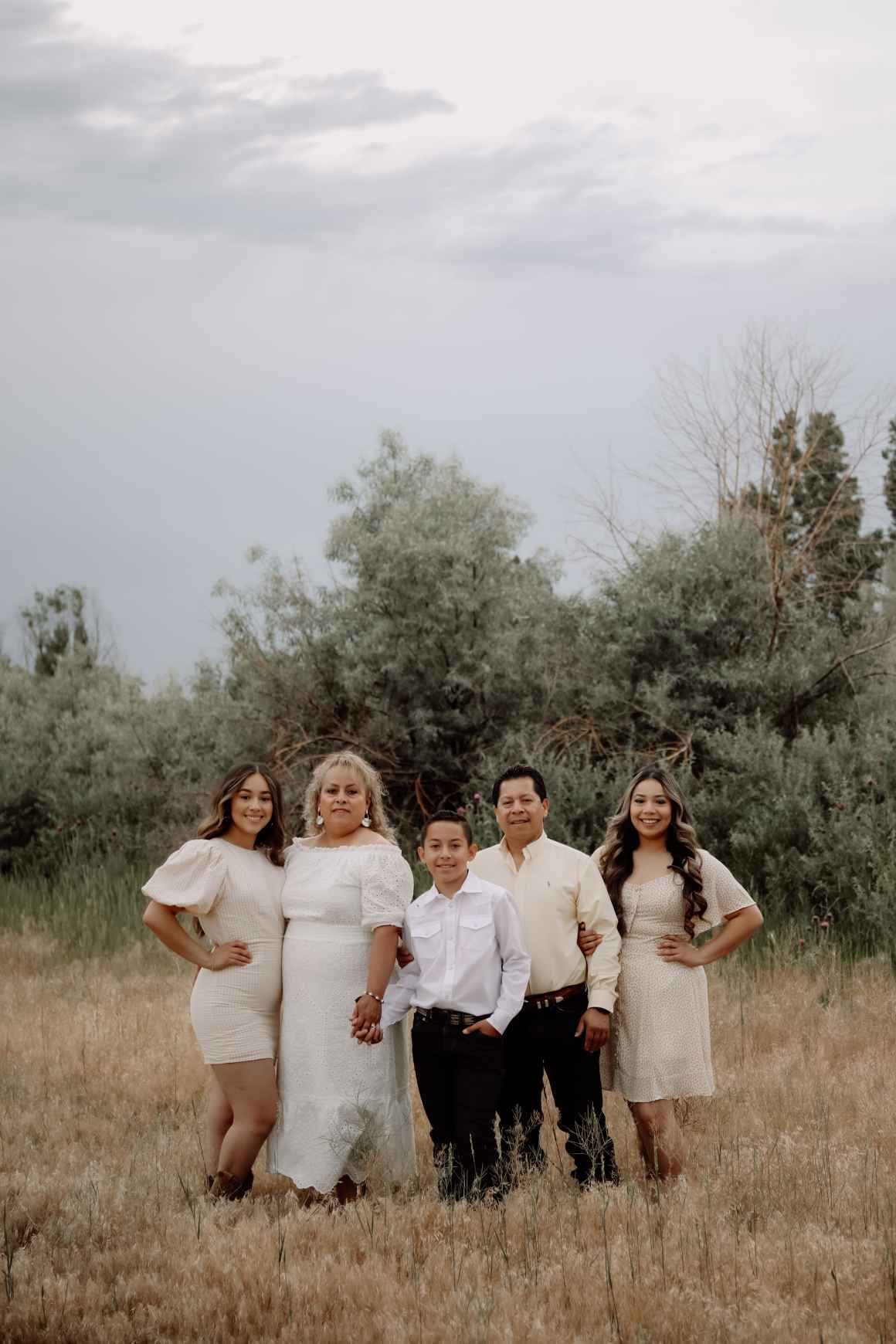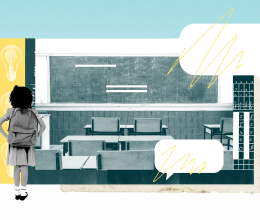

But Natalie did not always have positive educational experiences, especially in her time attending public school in Idaho. Indeed, she described her time in Jerome public schools as “the worst experience of my entire life.” Although a lot of her activism in high school focused on increasing opportunities and visibility for Latinx students, she describes constant pushback and little action from administrators.
Natalie also serves as the Director of Diversity and Inclusion for UI’s student government, and her experiences advocating for her education in Jerome led her to want to pursue a law degree.
*The following interview has been edited for clarity.
How important was your education for your family?

I imagine the experiences that my dad would have had if he had learned English, had been able to attend school here, and gotten a college degree. He is a very intelligent man. The way that my parents see education is they see it as what they did not have. That’s how they see us going to school, they’re living that experience through us. When we have this opportunity, I think it gives them a lot of strength and a lot of encouragement.
They don’t regret what they did when they left their home and risked it all, because they’ve seen how successful my older sister and I have been—even my little brother, who is only 12 years old, but he’s also very intelligent. And my parents are able to live through us when we receive opportunities to continue our education. They reevaluate their decisions of coming to the United States.
What was your experience like attending school in Jerome?
This is a really hard question, because now that I’m studying for the [Law School Administration Test], or when I encounter a really hard problem, I blame it a lot on the way that my past education has been. I think I’ve had the worst experience of my entire life going to Jerome School district. I think that my life would have been completely different if I would have been in another school district.
I was conditioned my entire life as not being seen capable by my teachers, because of my racial identity--to not think that I am smart enough or valuable enough in education. I was challenged, but not to the level that my white peers were challenged. When I did enter higher education and I was faced with those challenges that I wasn't offered in high school, it was so hard to catch up and to compete at that level. I get really frustrated and annoyed because I know that I’m not the only one who suffered from all of that, and thankfully I was able to battle with those norms of the white culture and the white identity, and I got to continue to higher education. But a lot of the times I had to fight to be in my dual credit classes.
It frustrates me a lot, because my other peers didn’t get to continue their higher education: this could have been a possibility for them, too. And there’s a lot of reasons why they don’t continue to higher education. But I feel like the [top reason] from my perspective, is because we weren’t challenged. We weren't seen as valuable. We weren’t seen as smart. So, the idea of continuing to higher education was seen as impossible.
Was your school in Jerome receptive to supports needed for Latinx students?
The Latinx population is so large in Southern Idaho, specifically in Jerome County. And the administrators have master’s degrees, they’ve gone to college, they’ve had higher education experiences. So, the fact that they don’t do anything about this is just very frustrating. They know the importance of culture is not only in learning and education, but in leadership and the potential to [pursue] higher education.
And that was much of my activism in high school [through the student club Latinos in Action]. How do we get those opportunities to students? And how do we encourage students to continue [their education]? But I think my activism didn’t extend because I was always battling with the administrators and [had to think]: “How do I explain to them the importance of why it matters in the first place?”
I remember one time that our principal walked in [to our classroom] right before COVID hit. And he asked us to brainstorm ideas as to what to do to help the Latinx population. And I just remember thinking, “Why is he first asking us for these recommendations?” He knows very well what is needed and what lacks. I understand getting the perspective of students, but Latinos in Action had been here for a long time. He knows very well what’s needed . . . You’re asking for advice, and then the momentum is not going.
Why do you think you did not have equitable access to educational opportunities?
I think it was not having a voice for me. There was no Latina, Latinx, or Chicanx administrator. There [are] only a few teachers. But again, they were Spanish teachers . . . and my counselors were white. It was very hard for them to understand my perspective. They don’t understand the family connection that a Latinx or Chicanx person has. Moving away eight hours away to receive an education is way more complex for a Latinx and Chicanx student than it would be for a white person because of that family connection.
And people are already conditioned to think that we are not capable enough. This creates this huge battle against one another, of trying to prove yourself over and over again and it not being seen. I think that not having the representation, and then, people already having a vision of you, held me back [from having] higher expectations.
[For example,] I did FAFSA [off-campus] through TRIO because I was a TRIO scholar. I knew about it was because my dad texted me that it was happening, and he’s told me “You need to go to this, because we don’t know how to do it, and your older sister is eight hours away she’s not going to be able to help you.” I know that a lot of [White] students already have parents who’ve experienced how to do FAFSA, so they didn’t really need those clinics. Or if they did, they already had close connections with the counselors. So, did they have to take time out of their day to go to this clinic? No, because they could just go down to their office and do it. And if they did go to these clinics, you know that the counselor is going to be by their side twenty-four-seven while you are here struggling trying to file your FAFSA. Things like that really altered my experience.
Did you feel comfortable talking about race or racial identity with your teachers?
The teacher and other students that were in the classroom really affected my comfort zone to express my [racial] identity. Because I know that a lot of students had already been prone to think that we are not capable, or that race is not an issue. It really depended on the context of the room environment. Did I want to risk it? Did I want to be put on the line? Did I want to feel worse about myself than I already did?
I can only think about one class, my English class, where my teacher was a professor and had a PhD. She was the one who pushed this expression of culture and race, and she was the only one, besides Latinos in Action, who made me feel comfortable to acknowledge how race related to my identity and to express myself through my paper [assignments].
What change would you like to see in schools in Jerome?
I think the problem within the school and in general is that a lot of Latinx [students] and [students who] come from immigrant parents, they either have a connection with their culture or they don’t. So having someone who is Latinx [and] who is passionate about the culture and representing them on the School Board or somewhere in the administration is my recommendation. Having a principal who identifies as Latinx . . . it would make it such a big difference. Because they would be able to advocate for the students when hard conversations come up. And I think representation in general, including counselors, it would have been much easier for me to have a person where I could have walked into their office and just have a conversation with them, not even about academics.
The Education Equity for Latinx Students project started in the fall of 2022 as part of our efforts to expand racial justice work on behalf of Idaho students, beginning with Latinx communities.
READ MORE STORIES AND LEARN ABOUT THE EDUCATION EQUITY FOR LATINX PROJECT
